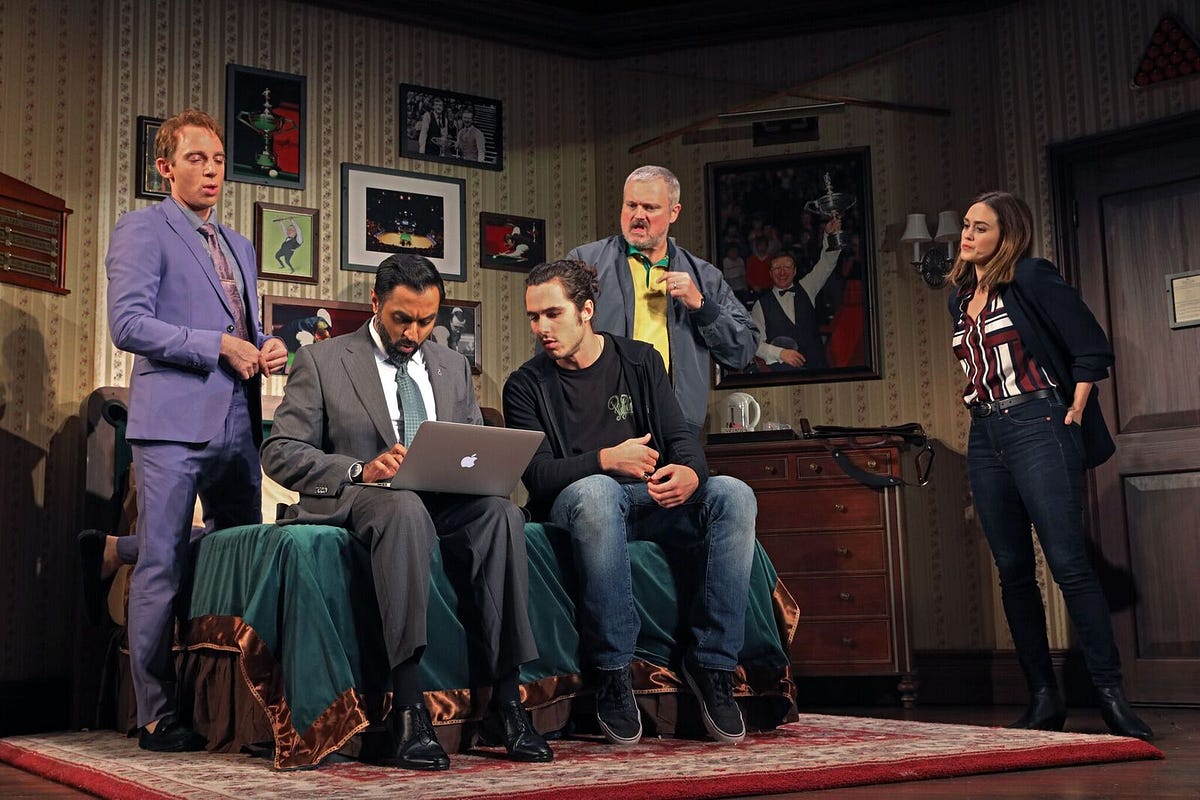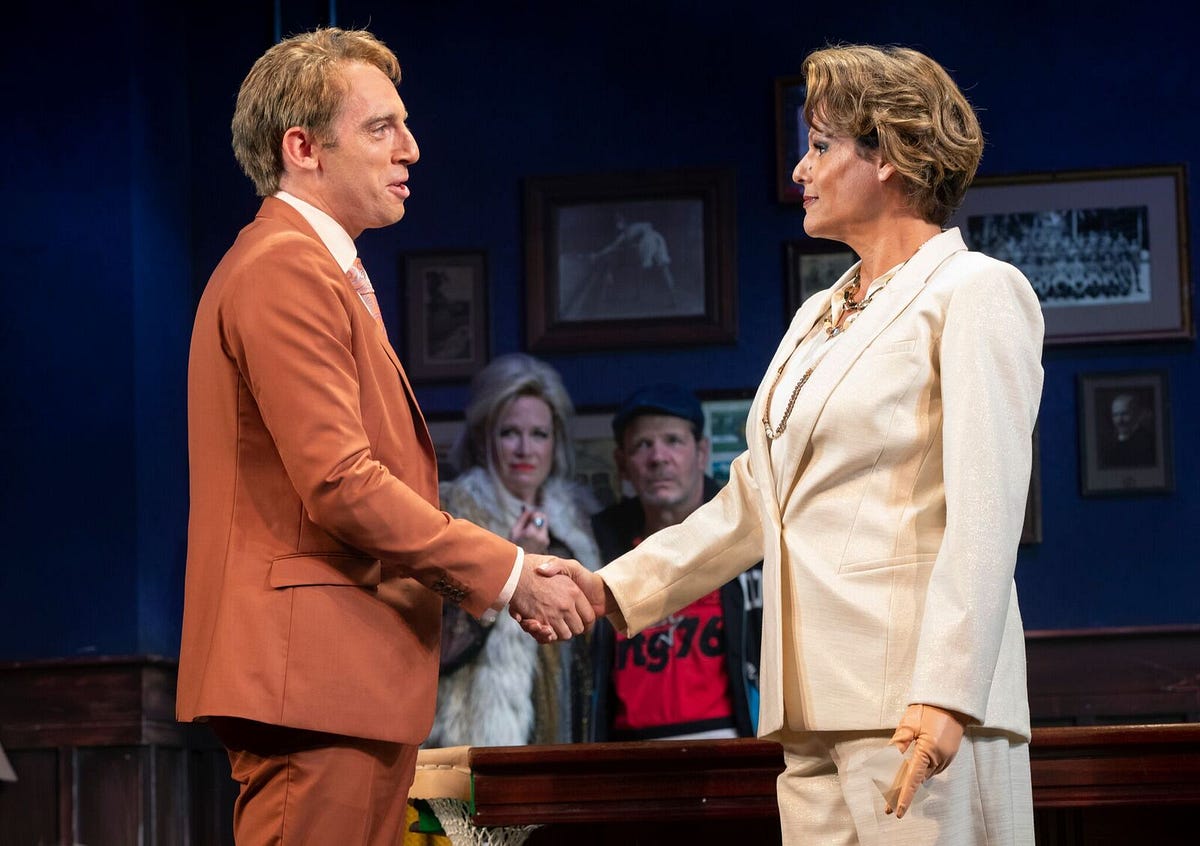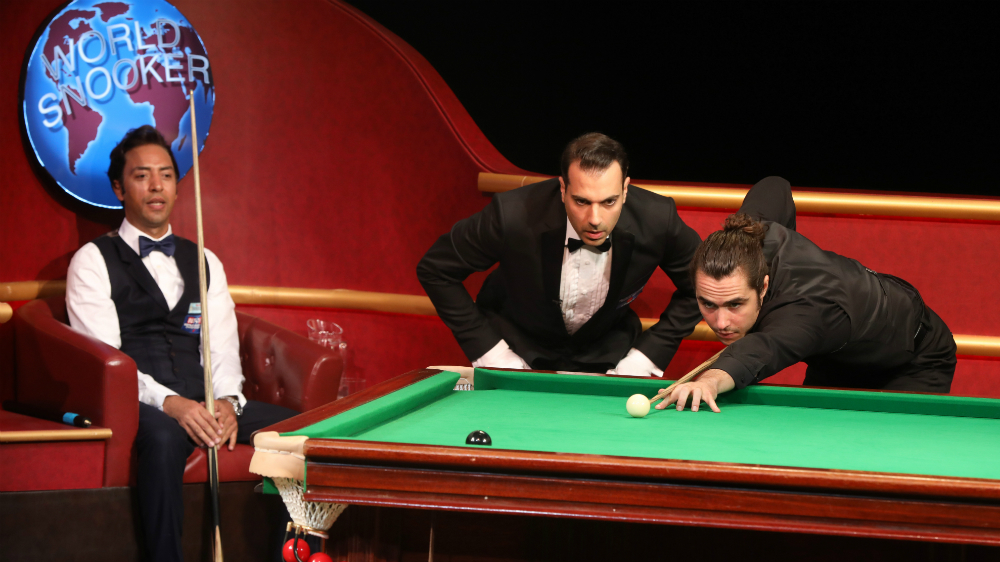It may be early, but I am confident when I say that “The Nap” is the low point of the Broadway season. This new play by Richard Bean, directed by Daniel Sullivan, is a Manhattan Theatre Club transfer from London, where it should have stayed. “The Nap” is supposed to be a classic British farce, but it is tragically unfunny, consistently offensive, and devoid of any quality.
The main subject of the play is snooker, a British variant on pool or billiards. Here in America, no one knows anything about snooker, nor will they learn much about it from watching this play. Don’t go to the show expecting to have the rules explained to you, this never happens. The one time they do mention the logistics of the game, it is in the final scene and is done in a way that makes this mysterious foreign game even more confusing. The plot of the piece concerns a protege snooker player who is forced to throw part of a championship game so gamblers can make money off of him.

Into this already bizarre mix, add an ex-drug dealer who can’t do basic math, an over-zealous agent, an actress/pole dancer/con artist/cop, a disabled trans woman gangster, a woman who sells stolen steaks out of her purse, and our central snooker player, who is a passionate vegetarian. There is no other word to describe this cast of characters than ridiculous — and not in a funny way, in a deeply annoying way. The characters are constantly making jokes about these preposterous traits, and the shtick gets old very quickly. To make matters worse, the majority of the jokes are rather offensive. In the course of the first scene alone, they managed to mock Native Americans, vegetarians/vegans, disabled people, trans people, queer people, Christians, sex workers, and Thai people — and those are just the ones I remember.
This awful first scene lasts over an hour, a staggering length for a play that totals two and a half hours. Not only is this run time overly long for such a badly written and poorly plotted comedy, but the structure of the scenes is equally haphazard, with the opening scene taking up almost half the play and other scenes being mere minutes.
Perhaps the only not cringe-worthy part of the play was the two snooker scenes, where the main actor, Ben Schnetzer (no comment), faced off live against an actual snooker champion, Ahmed Aly Elsayed (who is not an actor and did not speak a single word). These scenes were meant to be the climax of the play since they included live matches that were broadcast on to a large screen so the audience could see every shot. The potential for error here is high. Although screwing up these pivotal scenes would be on par for the production, at the performance I went to everything went smoothly — mostly because the professional snooker player does all the work, and sets up our actor, Mr. Scknetzer, to only have to hit a small number of very easy shots.

It is remarkably unclear why the playwright felt the need to include a disabled trans woman gangster in the show. The character, Waxy Bush, is missing an arm, but has a bad prosthetic that does not move, and is covered in a black rhinestoned glove — unsurprisingly they make almost as many ableist jokes about this as they make transphobic jokes about Waxy “before the operation.” But wait, it gets worse. Waxy also has a bizarre verbal tick where she messes up common phrases, such as “I never imagined this in my wettest dreams” or “I look on the bright side, I’m an optometrist.” These idiotic, poorly written excuses for wordplay spew out of her mouth every time she talks. The only good thing about her character is that she is played by a trans actor, Alexandra Billings. I’ll give the show points for casting a trans actor to play the trans character, but they get points for literally nothing else.
After unhappily sitting through the entire ordeal of production, I am still utterly confused as to why the Manhattan Theater Club wanted to do this production. Who does it appeal to? Who would possibly enjoy it? It is very telling that at the end of the show, not a single person stood for a standing ovation, a true sign of failure for a Broadway show today.






